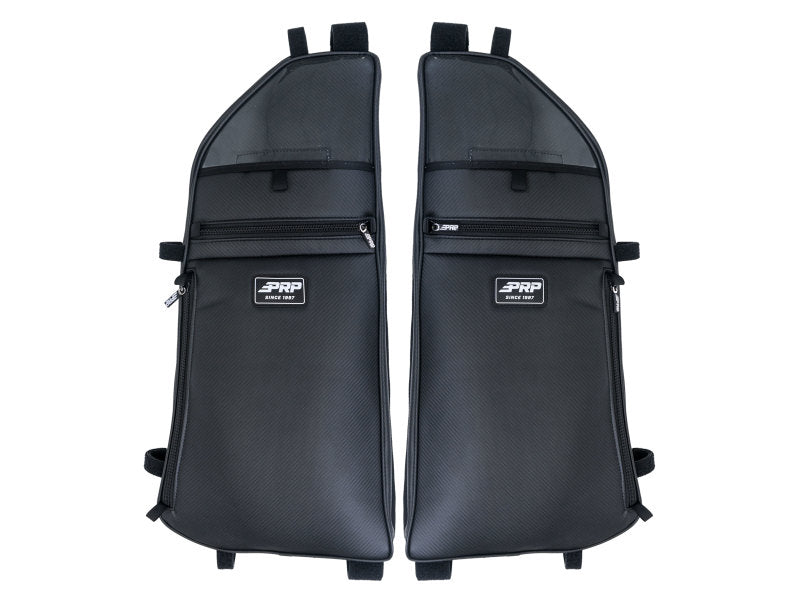Ensuring your air intake system gets enough clean air is key for your engine to work well and powerfully. Clean air helps mix fuel efficiently, improving combustion and saving fuel.
Air filters are important as they keep out harmful dirt and debris. However, if air flow is blocked, your engine won't run as smoothly. Parts like air filters, mass airflow sensors, and throttle bodies are crucial for keeping air flow steady and avoiding issues.
Blocked filters or ducts can reduce performance. Keeping these parts in good shape, and considering upgrades like cold air intakes, helps your engine stay efficient.
Knowing about these parts can really help your vehicle perform better and last longer.
Key Takeaways
- Proper airflow ensures optimal engine performance and fuel efficiency.
- Clean air filters prevent engine damage and prolong engine life.
- Air intake systems enhance combustion by supplying adequate, clean air.
- Regular maintenance of air intake components avoids costly repairs.
- Upgrading to cold air intakes can boost engine efficiency and reduce emissions.
Understanding Airflow Basics
Understanding airflow basics is crucial for engine efficiency. The air intake system must deliver enough clean air for an optimal air-fuel mixture. This ensures the engine performs efficiently.
If airflow is lacking, engine power and fuel efficiency drop. This can also damage the engine over time.
Air filters are essential for clean airflow. They catch contaminants before they reach the engine. Clean air prevents damage to the engine's components, avoiding efficiency loss and engine failure.
Air and fuel balance within the engine is key to its performance. Incorrect air levels can harm combustion, reducing engine efficiency. The air intake system's condition directly affects engine performance and lifespan.
Air Intake Systems Explained
Air intake systems are crucial for vehicle engines to function properly. They ensure the engine gets clean air for efficient combustion, which boosts power. The air filter is key, blocking debris and allowing only clean air to mix with fuel.
Mass airflow sensors are important too. They measure the air volume entering the engine, critical for adjusting fuel injection and maintaining efficiency.
Ducts and hoses keep air flowing smoothly to the engine, preventing performance issues. Throttle bodies control airflow, adjusting it based on how fast you're driving to keep the engine efficient.
These components work together to manage air intake, essential for good combustion and engine performance.
Significance of Air Filtration
Air filtration is crucial for maintaining engine efficiency and performance. It prevents dust and debris from damaging the engine, which is vital for its operational capability.
Clean air filters improve engine efficiency. They allow for better combustion by providing clean air, necessary for optimal fuel burning. This leads to increased power and fuel efficiency, enhancing vehicle performance and reducing fuel consumption.
Regular maintenance and timely replacement of air filters are essential. Clogged air filters can reduce fuel efficiency, increase emissions, and cause engine problems.
Upgrading air intake systems, like adding cold air intakes, can boost engine efficiency. Cooler, denser air increases horsepower and overall efficiency.
Air filtration directly impacts engine performance. Regular maintenance and upgrades are important for vehicle efficiency.
Common Airflow Obstructions
To keep an engine running well, it's crucial to remove common airflow obstructions. These include clogged air filters, blocked intake vents, and dirty intake manifolds.
Clogged air filters lower air intake efficiency, harming engine performance. Blocked intake vents reduce the oxygen needed for combustion, cutting power output. Dirty intake manifolds hinder airflow, affecting fuel combustion and engine operation.
These obstructions decrease oxygen for the air-fuel mixture, reducing power and fuel efficiency. They also disrupt air distribution, worsening these problems.
A faulty Mass Airflow Sensor (MAF Sensor) can wrongly adjust the air-fuel mix by misreading the air volume, affecting performance. Damaged ducts and leaking hoses let air escape, lowering combustion efficiency and engine power. Fixing these issues is key to an efficient, powerful engine.
Benefits of Optimal Airflow
Optimizing airflow through air intake systems significantly boosts engine performance and fuel efficiency. This ensures every engine breath is efficient and prevents damage. Proper airflow is crucial for optimal engine operation.
Three key advantages of ideal airflow include:
- Enhanced Engine Performance and Fuel Efficiency: Optimal airflow creates a perfect air-fuel mix, leading to peak combustion. This results in higher horsepower, better torque, and improved fuel efficiency.
- Damage Prevention: Clean air filters in air intake systems block dust and debris. This protects the engine and prolongs its life by preventing premature wear and tear.
- Reduced Power Output and Emissions: Clogged filters restrict airflow, leading to lower power and higher emissions. Regular maintenance and system upgrades keep your engine efficient and environmentally friendly.
Detecting Airflow Issues
Detect airflow issues in your vehicle by first checking the air filters. Clogged filters restrict airflow and lower engine performance. Air filters are crucial for engine efficiency and should be checked first.
Inspect intake ducts and hoses for blockages or leaks. These parts are vital for directing air to the engine. Any problems here significantly affect performance.
Pay attention to the Mass Airflow Sensor (MAF Sensor). It measures the air entering the engine to ensure the fuel mixture is correct, supporting efficient combustion and fuel efficiency.
Ensure the throttle body is clean and works properly. It controls air flow into the engine. Problems can lead to air intake imbalances and impact engine performance.
Regular maintenance, including cleaning and filter replacement, is key. This prevents debris entry and maintains airflow efficiency. Following these steps helps keep your air intake system running smoothly.
Upgrading Your System
Upgrading your air intake system boosts your vehicle's horsepower and efficiency by using cooler, denser air for better combustion. This upgrade can significantly enhance engine performance. It's important to choose the right upgrade for your specific vehicle to ensure the best results. Consulting experts and doing thorough research is advisable.
Installing high-performance air filters increases airflow and can improve horsepower. These filters also enhance the sound of your engine, making your driving experience more enjoyable. They're designed to allow more air in while reducing the risk of clogging that can lower performance.
Each vehicle responds differently to air intake upgrades. Knowing how your car will react to these changes is crucial for achieving an increase in horsepower and efficiency.
Regular maintenance of air filters is important. Clean or replace filters as needed to prevent airflow restriction, which can reduce engine performance, fuel efficiency, and increase emissions. Upgrading your air intake is a good opportunity to improve engine performance and longevity.
Maintenance Best Practices
Regular maintenance of your vehicle's air intake system is crucial for peak engine performance and efficiency. Replacing the air filter regularly prevents dust and debris from clogging the system, ensuring optimal airflow. This boosts engine performance.
Cleaning intake ducts and hoses is essential. It keeps airflow smooth to the engine, enhancing performance. Over time, without cleaning, dust and grime build up, causing inefficiencies.
The mass airflow sensor (MAF sensor) is key in measuring oxygen and adjusting fuel ratios. Keeping this sensor clean guarantees accurate measurements, crucial for engine efficiency and fuel economy.
Regular inspections and cleaning of the throttle body prevent airflow restrictions, maintaining engine efficiency. Proper maintenance of the intake manifold ensures correct air distribution to the engine cylinders, improving combustion.
These practices optimize combustion and improve engine performance by preventing airflow restrictions.
Cold Air Intakes: Overview
Cold air intakes boost horsepower and engine efficiency by drawing in cooler, denser air from outside the engine bay. This upgrade is key for increasing a vehicle's power. The system ensures the air mixed with fuel is rich in oxygen, improving combustion. This leads to power gains and a more aggressive engine sound, pleasing performance enthusiasts.
Key points about cold air intakes include:
- Engine Performance: They supply denser air with more oxygen, enhancing power output.
- Efficiency: The system ensures optimal oxygen levels, reducing fuel waste.
- Maintenance: Regular maintenance is essential for continued power gains and efficiency.
Cold air intakes are vital for optimizing engine performance through improved airflow and efficiency, with proper maintenance.
Professional Airflow Solutions
Optimal engine performance relies on effective airflow management. Clean air filters are crucial for preventing dust and debris from entering the engine and causing damage. It's essential to maintain and replace these filters regularly to avoid costly repairs and ensure high-quality airflow.
Clogged filters can reduce engine performance, fuel efficiency, and increase emissions. It's important to promptly address any airflow issues. Upgrading air intake systems can improve horsepower, efficiency, and overall vehicle performance.
Professional airflow solutions provide the expertise and technology needed for peak air intake system performance. This approach protects your engine and supports eco-friendly and cost-effective vehicle operation. The health of your engine depends on a well-maintained air intake system.
Frequently Asked Questions
Why Is Correct Airflow so Important During System Operation?
Proper airflow is crucial for system operation as it ensures the engine receives the correct amount of air for optimal combustion. This boosts fuel efficiency, lowers emissions, and prevents overheating, leading to better performance and longer life.
How Does Proper Airflow Help the System?
Proper airflow ensures the engine receives the correct oxygen mix, avoiding overheating and improving fuel efficiency. It also protects the engine from debris damage, allowing the air intake system to operate smoothly and reliably.
What Is the Importance of Airflow?
Airflow is crucial for your engine's health and performance. It ensures your engine runs efficiently, lasts longer, and emits fewer pollutants. Regularly checking and maintaining air filters to avoid blockages is important.
Why Is It Important to Regularly Ensure That Airflow in a System Is Balanced?
Regularly balancing your system's airflow prevents engine damage, improves emissions control, and boosts fuel efficiency. This ensures your engine operates efficiently, has a longer lifespan, and performs well.





